|
A new name, a renewed commitment
Welcome to UT Healthier News, the health and wellness newsletter brought to you by the physicians and care providers of UT Health San Antonio.
As a patient or potential patient, you may know that UT Medicine was made up of the doctors from the School of Medicine at The University of Texas Health Science Center at San Antonio.
Welcome to UT Healthier News, the health and wellness newsletter brought to you by the physicians and care providers of UT Health San Antonio.
As a patient or potential patient, you may know that UT Medicine was made up of the doctors from the School of Medicine at The University of Texas Health Science Center at San Antonio. The Health Science Center is now known as UT Health San Antonio, and UT Medicine is also aligning its name to UT Health to help simplify the unique and important integrated relationship between teaching, research and patient care, which supports the most advanced health care in the region.
While our name has changed, our commitment to the highest quality of patient-focused health care remains steadfast. UT Health San Antonio is the same group of more than 700 physicians representing 125 specialties or sub-specialties that has served the health needs of hundreds of thousands of South Texans for many years. Indeed, UT Health is the largest medical practice in Central and South Texas.
In addition to our major outpatient facility at the Medical Arts & Research Center in the South Texas Medical Center on Floyd Curl Drive, primary care clinics and other specialized facilities exist throughout San Antonio. In March, our newest outpatient facility, UT Health Hill Country, will open near Boerne with a wide range of specialists and imaging services.
As an academic health center, UT Health San Antonio is unique in the depth and quality of patient care offered in South Texas. In scientific research and discovery, UT Health’s research faculty works closely with providers and patients to develop lifesaving advances in treatments for diabetes, cancer, neurodegenerative diseases, infectious diseases and regenerative medicine. From primary care to the most complex diseases, UT Health physicians are here to serve you and your family with the most advanced technology, comprehensive knowledge, expert care and compassion.
So, welcome to UT Health. Today, as always, we pledge our commitment to a Healthier you.
 |
|
 |  |
|
March is colon cancer awareness month
Colon cancer is different from most cancer because it is one of the most preventable and treatable forms of cancer when you follow steps for early detection. Colon cancer awareness is about reducing your risk and screening for the disease before symptoms appear.
Colon cancer is different from most cancer because it is one of the most preventable and treatable forms of cancer when you follow steps for early detection. Colon cancer awareness is about reducing your risk and screening for the disease before symptoms appear.
Reducing your risk through lifestyle changes is a great way to prevent colon cancer. Like all cancers, smoking is a major risk factor and quitting a nicotine habit is a great first step to reducing your risk. Daily exercise is also a great way to reduce your risk. For most people, this simply means walking for 20 to 30 minutes a day, four or five days a week.
Eating a balanced diet can also reduce your risk for colon cancer. Studies show that a diet with plenty of fruits and vegetables can reduce your risk for many diseases, including colon and other cancers. Fruits and vegetables with fiber are good sources of vitamins, minerals and other nutrients and anti-oxidants, which help protect cells.
Screening is also very important. Screening tests for colon cancer may include a review of your family history, a stool test or a colonoscopy. Your doctor will work with you to determine the best tests for your needs and situation. Early screening is important because colon cancer starts as a very small growth of cells in the large intestines and then grows slowly over time, changing from pre-cancer cells to actual cancer cells. These cells can be easy to see and many times, a doctor is able to remove the cells before they grow or spread as cancer. If you have a family history of colon or other cancers, be sure to tell your doctor because this can affect which tests your doctor will recommend and the timing of those tests.
Gastroenterologists are doctors that specialize in the digestive system. They also deal with screening patients for colon cancer through a procedure called a colonoscopy. In this procedure, the doctor looks through your intestines with a camera and examines the lining of your colon. If the doctor sees any suspicious cells (called polyps) during the exam, they can remove them at the same time. This make the procedure very effective for screening and preventing colon cancer.
For more information, contact your doctor, or, if you need the expert of a colon cancer doctor, visit our page at the UT Health Cancer Therapy & Research Center to learn more or make an appointment.
 |  |
Safe and smart exercise
by John "Trey" Green III, M.D., Orthopaedic Surgeon
Everyone knows that exercise is good for us. Exercise, in fact, may be the best medicine to prevent and treat common medical conditions such as high blood pressure, heart disease, stroke, osteoporosis and diabetes.
Everyone knows that exercise is good for us. Exercise, in fact, may be the best medicine to prevent and treat common medical conditions such as high blood pressure, heart disease, stroke, osteoporosis and diabetes. And most people know they should be exercising more. But haphazardly jumping into exercise, particularly if you’re not in shape or carry a few extra pounds, can often do more harm than good and lead to painful injuries. Here are some suggestions to make exercise more effective and less of a pain: - Stretching can be a good way to start. Static stretching, such as touching your toes for 10 to 30 seconds, or dynamic stretching, such as slowly going through a more complicated sports specific movement, can both be beneficial.
- Warming-up is the gradual increase in exercise intensity to increase your body temperature to break a sweat, usually 5-10 minutes. This process prepares muscles for more strenuous activities.
- Low impact activities minimize the shock to the joints while enabling strenuous muscle work. Exercise machines work a variety of different muscles through different ranges of motion. Some examples are an exercise bike, elliptical, stair stepper and rowing machines.
- Start slowly. Depending on your age and fitness level, the intensity and duration may need to start at a very modest level. Increasing weekly activity by 5 percent is generally well tolerated.
- Cross training means varying the workouts throughout the week to change the main muscle groups and intensity of exercise. This helps clear out the lactic acid build up from previous workouts and allows for muscles to rest and recover.
- Cool down refers to slowly decreasing activity after a workout for 5 to 10 minutes to return to baseline heart rate. This can help decrease muscle soreness and speed up recovery.
- Shoes that are made for running have extra padding in the heel for shock absorption, and the cushioning breaks down before you see wear on the tread or upper portion of the shoes. Invest in a new pair and break them in by walking before starting your new fitness routine.
- Listen to your body. Some muscle soreness the day after exercise is one thing, but any other type of pain associated with exercise is not good. Modify the workout, decrease the intensity and/or volume and add extra rest. The body’s need for rest days increases with age.
- Don’t be aweekend warrior and try to get the whole week of exercise in one day. This is how injuries happen. Thirty minutes of activity in five different days of the week is a safer way to exercise.
To schedule an appointment with Dr. Green or any of our orthopaedic specialists, call 210-450-9300.
 |  |
Cervical health awareness
by Georgia A. McCann, M.D., Gynecologic Oncologist
Cervical cancer is one of the most common causes of death for women with cancer in the Unites States. But with the proper interventions--Pap smears and the HPV vaccine--cervical cancer is almost 100 percent preventable.
Cervical cancer is one of the most common causes of death for women with cancer in the Unites States. But with the proper interventions--Pap smears and the HPV vaccine--cervical cancer is almost 100 percent preventable.
The cervix connects a woman’s uterus to her vagina. The cells within the cervix are susceptible to infection by the human papilloma virus (HPV). The virus is contracted through sexual intercourse and affects both men and women of any age. Researchers have concluded that the majority of adults have been infected with HPV, but most infections do not cause any symptoms and resolve without treatment. Cervical cancer results from an HPV infection that does not go away. The nation’s top cancer centers agree the best way of preventing HPV is through a 2-step vaccination series given to preteen boys and girls before they become sexually active. It is most effective when given at age 11 or 12, but adults can also receive the HPV vaccine.
Routine Pap smears will detect HPV infection and precancerous cells that can be treated before becoming cancer. Women should visit a gynecologist every year for a general exam. Pap smears are recommended every three to five years depending on a woman’s specific medical history.
Again, unlike most cancers, cervical cancer is preventable. The battle will be won through increased awareness, HPV vaccination and regular Pap smears.
Symptoms of HPV
- Bumps or growths in the pelvic region
- Itching sensation on or near the genitals
- Abnormal Pap smear
- Cervical cancer
Symptoms of cervical cancer
- Abnormal Pap smear
- Pain during sex
- Bleeding after sex
- Longer and/or heavier periods
- Bleeding after menopause
- Bleeding between periods
- Other abnormal vaginal bleeding
 |
|
 |  |
|
UT Health Hill Country opens March 6
New Location – Off Ralph Fair Road
UT Health’s newest location, just off Ralph Fair Road and Interstate 10, will open Monday, March 6. It will feature a range of specialties, including Primary Care, Urology, Orthopaedics and Physical Therapy, as well as lab and full imaging services. The imaging center will feature a 64-Slice CT Scanner and a 3.0 Tesla MRI as well as digital X-ray and ultrasound.
UT Health Hill Country is located 10 miles south of Boerne and seven miles north of Loop 1604, just off I-10 at the Ralph Fair Road exit. The address is 25723 Old Fredericksburg Road, Boerne, Texas 78015. Visit UTHealthHillCountry.org or call 210-450-6800 to make an appointment.
Family physician of the year
Ashok Kumar, M.D., FRCS, FAAFP, a primary care physician with UT Health San Antonio, was named Physician of the Year by the Texas Academy of Family Physicians.
Ashok Kumar, M.D., FRCS, FAAFP, a primary care physician with UT Health, was named Physician of the Year by the Texas Academy of Family Physicians (TAFP). This is the highest award given by the organization, which Dr. Kumar received on November 5th, at the 2016 Annual Session Primary Care Summit, in Dallas.
“As a family doctor, I am really proud to be in front of you and receiving this award,” Dr. Kumar said. “When I see all these wonderful doctors in the audience, I am really humbled and honored to receive this award as Family Physician of the Year.”
Originally from India, Dr. Kumar earned his medical degree from Osmania Medical College, Hyderabad, India. After completing an internship at Osmania General Hospital, Hyderabad, India, he went on to complete a general surgery residency at Royal College of Surgeons of Edinburgh. He would later immigrate to the United States and complete an additional residency in family medicine at UT Health Northeast in Tyler.
Dr. Kumar has served as president of the Texas Academy of Family Physicians, is the current chair of the health care committee of the San Antonio Mayor’s Fitness Council, and is a member of the Mayor’s Executive Committee.
Criteria for the TAFP Physician of the Year award requires that candidates be compassionately dedicated to their patients; active in their communities; and act as a credible, invaluable role model as a professional in the science and art of medicine.
Dr. Kumar is a practicing physician at UT Health Primary Care.
 |  |
Love your heart!
by Ildiko Agoston, M.D., Cardiologist
Heart disease is still the primary cause of death for men and women in the United States. UT Health is dedicated to changing that statistic through education, early intervention and excellent cardiovascular care. Here are some heart healthy tips.
Heart disease is still the primary cause of death for men and women in the United States. UT Health is dedicated to changing that statistic through education, early intervention and excellent cardiovascular care. Here are some heart healthy tips: - Manage your blood pressure. High blood pressure is the single most significant risk factor for heart disease. One out of every three American adults has high blood pressure, and many are unaware of the fact. A healthy blood pressure is lower than 130 systolic and lower than 80 diastolic, or 130/80.
- Get active. People who exercise regularly have better heart health than those who do not. Make a decision to get moving. Choose activities you’ll enjoy so exercise isn’t a burden; it’s a part of life.
- Control your cholesterol. When there’s too much cholesterol in your blood, you are at major risk for heart disease and stroke. Have your primary care physician check your cholesterol. Follow their advice in addition to making healthy food choices and being active.
- Eat better. A variety of heart-healthy nutrition keeps you living at your best health potential. Say yes to: Fruits and vegetables; whole grain carbohydrates; fat-free and low-fat dairy products; and fish with omega-3 fatty acids. Say no to: foods and beverages with added sugar; products high in sodium.
- Maintain a healthy weight. A body mass index between 18.5 and 25 is optimal for cardiovascular health. Calculate your BMI here. Reduce the number of calories you take in through healthy food choices, and increase the number of calories you burn through exercise.
- Don’t smoke. Smoking is the No. 1 modifiable cause of death. Talk with your health care provider about your plan to quit smoking. Focus on the rewards of living smoke-free, and plan your response to roadblocks you’ll experience along the way. Need help to quit? We offer free smoking cessation classes.
- Reduce blood sugar. High blood sugar encourages the growth of plaque in your arteries and increases your risk for diabetes, heart disease and stroke. Make healthy food choices and commit to regular physical exercise.
Ildiko Agoston, M.D., at cardiologist at UT Health, advises everyone over the age of 20 see a primary care physician for a blood pressure and weight check as well as a fasting glucose and cholesterol screening. Knowing and tracking these numbers can alert your health provider to potential risks and ensure any concerns are immediately addressed.
 |  |
Primary care really is primary
Every day, UT Health’s primary care physicians help hundreds of adults and adolescents feel better and focus on their overall health. Primary care appointments normally include preventative care such as check-ups and immunizations, acute care for illnesses and injuries, and ongoing care for chronic conditions like diabetes, high blood pressure and cholesterol.
Every day, the primary care providers at UT Health help hundreds of adults and children in San Antonio stay healthy. Our clinicians help patients with preventive care needs (yearly checkups and immunizations), acute conditions (illnesses and injuries), and care for chronic conditions (diabetes, high blood pressure and high cholesterol). Our practice offers patients a comprehensive care model that easily connects them with behavioral health consultants, pharmacists, geriatricians and case managers when needed.
Primary care physicians partner with their patients to prevent, heal and maintain health. When a patient goes to the emergency room, has surgery, or is prescribed a medication, the primary care provider should be notified so that they can review the information and help their patient stay as healthy as possible. With the primary care provider’s comprehensive knowledge about their patient, they are able to provide the professional background knowledge specialists such as orthopaedic surgeons, cardiologists, or neurologists can use to ensure every patient is provided the very best care.
UT Health currently has three locations offering primary care in San Antonio with a fourth location under construction. We also have a robust geriatric medicine practice, called UT Senior Health, at Christus Santa Rosa. Two practices are located within the South Texas Medical Center, and the third is in Westover Hills. Each of these practices was recognized as a National Committee for Quality Assurance (NCQA) Patient Centered Medical Home in 2016 for their outstanding patient care. Our newest primary care location is currently under construction as UT Health prepares to expand its services to the Hill Country. It will open March 6.
To help more people reach their optimal health, six new primary care providers have recently joined UT Health.
Maureen Alvarado, D.O.
Dr. Alvarado provides exceptional whole-health care to pediatric, adolescent and geriatric patients. She is now accepting new patients at the UT Health location on Medical Drive. Dr. Alvarado has special expertise in preventative care and wellness, women’s health, chronic disease management and osteopathic manipulation.

Paris Brinkley, M.D.
Dr. Brinkley is a family physician who is now accepting patients of all ages. She has special expertise in dermatological issues, sports injuries and managing headaches. Dr. Brinkley currently sees patients at the Medical Drive location, but will begin seeing patients at UT Health Hill Country in March 2017. UT Health Hill Country is now accepting appointments at 210-450-6800.

Ramon S. Cancino, M.D., MSc
Dr. Cancino is a family physician who provides excellent primary care for adults and adolescents. He is currently accepting new patients and will be providing care at UT Health Hill Country beginning March 2017. UT Health Hill Country is now accepting appointments for March at (210) 450-6800.

Kimberly Kone, M.D.
Dr. Kone is a family physician who is currently accepting patients of all ages at the UT Health Medical Drive Primary Care location. She has additional training in primary preventative medicine, chronic disease management, pediatric and adolescent health care, women’s healthcare including gynecology and contraceptive counseling as well as in-office procedures such as joint injections.
 Trina Hawkins, GNP
Nurse practitioner Hawkins specializes in the specific health care needs of senior citizens. She has additional training in wound care. She is currently accepting new patients and providing expert care at our location specializing in senior health.
 Monica Trevino, FNP-BC, MSN
Nurse practitioner Trevino provides excellent primary care to children, adults and seniors. She is currently accepting new patients at the UT Health Medical Drive Primary Care location, but will move to the UT Health Hill Country location in March. UT Health Hill Country is now accepting appointments at 210-450-6800.
For appointments with these primary care providers, please call 210-450-6120 or visit www.UTHealthCare.org.
 |  |
Get online with MyChart!
MyChart enables patients of UT Health to access securely their health information online, anytime, anywhere. MyChart is password protected and delivered via an encrypted connection, so all information is safe from unauthorized access.
MyChart enables patients of UT Health to access securely their health information online, anytime, anywhere. MyChart is password protected and delivered via an encrypted connection, so all information is safe from unauthorized access.
The MyChart tool can be used to request appointments, view test results and conduct routine communication with your provider and practice. It is not intended to replace office visits with your provider. Providers may not be able to answer all of your questions electronically and may request that you schedule an appointment. This will allow for a more accurate diagnosis and determine the best treatment plan for your condition.
To obtain an account, please ask for an access code next time you visit UT Health, or call 210-450-4111 and our office will give you an access code. For help logging in or for answers to other MyChart questions, please call 210-450-4111.
Once online, patients can: - Send secure emails to your UT Health providers and receive responses within 24 hours.
- Request appointments.
- View most laboratory results.
- View current medications, immunizations and allergies.
- Request medication refills.
- Update personal and insurance information.
Read more about MyChart on our website, here. The MyChart mobile app is now available. Registered MyChart users can now access their accounts using the MyChart app for iOS or Android. The app is available from the iTunes App Store or the Google Play Store. Download the app today!
 |  |
Location changes and updates
UT Health is expanding our space at the Medical Arts & Research Center (MARC), 8300 Floyd Curl Dr., in the South Texas Medical Center to accommodate more offices. Neurosurgery is now located on the 7th floor of the MARC, having moved from the St. Luke's Baptist location. Neurology is now on the 8th floor of the MARC, having moved from the 4th floor.
UT Health is expanding our space at the Medical Arts & Research Center (MARC), 8300 Floyd Curl Dr., in the South Texas Medical Center to accommodate more offices.
Neurosurgery is now located on the 7th floor of the MARC, having moved from the St. Luke's Baptist location.
Neurology is now on the 8th floor of the MARC, having moved from the 4th floor.
Changes at other locations include:
- Senior health services provided by UT Health has moved from Tower 1 to Tower 2, Suite 525 at CHRISTUS Northwest, 2827 Babcock Road, in the Medical Center.
- UT Health’s eye clinic has moved just down the hall – to Suite R2U28E – but still on the 2nd floor of University Hospital Rio Tower.
- Urology services provided by UT Health has moved from the 3rd floor of the Robert B. Green Campus, 903 W. Martin St., to the 5th floor of the same building.
Meet our new providers
Meet our new team members at UT Health San Antonio.
Our new team members this month include doctors, nurse practioners and a Certified Prosthetist Orthotist (CPO) and more. They are experts who care! Click the link on their name to learn more.
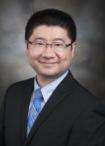
Derrick Sun, M.D.
Adult Neurosurgery
210-450-9840
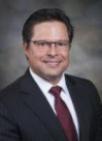
Darren Poidevin, CPO, LPO
Neurosurgery - Cranial Remolding Program
210-450-6470
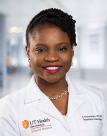
Adaobi Nwaneshiudu, M.D.
Dermatology
210-450-9840
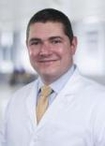
Haisar Dao Campi, M.D.
General Surgery
210-450-9200
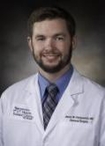
Jason Kempenich, M.D.
General Surgery
210-450-9200

John Green III, M.D.
Orthopaedics - Sports Medicine
Arthroscopic surgery of the shoulder, elbow, hip, knee and ankle
210-450-9300
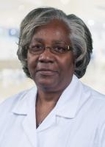
Trina Hawkins, GNP
Senior Health
210-450-9890
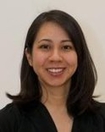
Amita Shah, M.D.
Plastic and Reconstructive Surgery
210-450-9220

Alexandriah Alas, M.D.
Urogynecology - OBGYN
210-450-6400
|
|
|